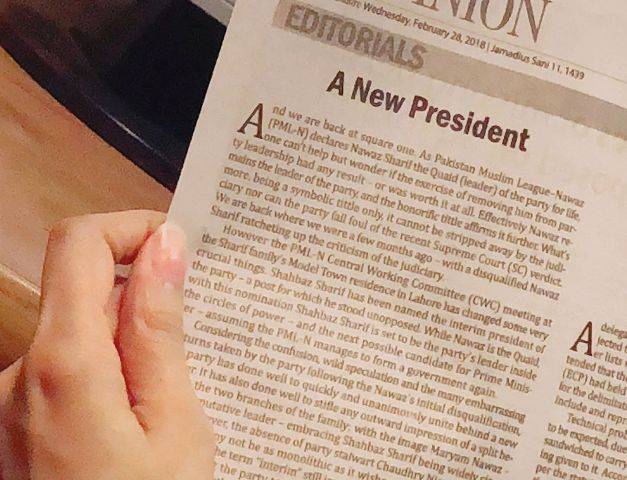Top-of-the-line editorials envisage making positive change in society. The question is what top class editorials are and what kind of social change is anticipated. Notions to be pondered are, on the one hand, set, standard and stereotype practice and, on the other, positive innovations in editorial writing towards a better and brighter Pakistan.
Set, standard and stereotype editorials need no introduction. Consciously or subconsciously powerful editorials expose corrupt social and political leaders and societal ills and evils. The editorial writer, knowingly or unknowingly, tends to rip individuals and organisations apart through blind and blatant criticism.
Positive criticism by editorials is sincerity, emotional maturity and suitable reasoning. It not only pinpoints problem areas but also attempts to analyse and tackle them. The subject of criticism is not offended but trusted and taken into confidence. Constructive criticism aims to soften die-hard habits and foster positive thinking for a better society.
Negative criticism through editorials is criticism for the sake of criticism. It is anything ranging from false-prestige to self-projection and personal interests. It is blind criticism where one-track thinking reigns supreme and blocks every other viewpoint. The target of criticism is offended and reformation becomes a far distant proposition.
When editorial critics make vanity or mockery of criticism, the criticised becomes obstinate, even arrogant. It has brought about many a serious situation to a helpless point of no return. Here criticism is defeating a particular individual rather than reforming a die-hard mentality. It is satisfying one ego at a heavy cost of another ego.
Why the progress of society is adversely affected is because the critic, the naysayer, the prophet of despair has become the hero of the day in editorial writing. Energy is lost looking down and finding faults, picking to pieces each other, ripping apart institutions and systems. Social fabric tears down as people cry problems they never dare to solve.
There is nothing wrong with criticism so long as society does not make a hero out of the critic. The critic has his place. He has legitimate functions and he has a job to do. But when we praise the critic for his rip job than the doer for his toil and creativity, the premium is being placed on the wrong job. Let this be our watchwords for editorial writing.
It is much easier to criticise than to create, much easier to point flaws in a product than to produce goods and much easier to tear something down than to build it. To glorify the critic while ignoring the much greater contribution of the man who tackles and solves the problem is a monstrous injustice. This is most humbly shared with our editorial writers.
Sharing, daring and revealing please that editorial writers of our newspapers are such breed of trendsetters, so understanding, enlightened and influencing indeed. Humbly and honestly they are leaders who can rise over and above self to care for and consider in letter and spirit little views as pleaded above in editorial writing all for Pakistan.






